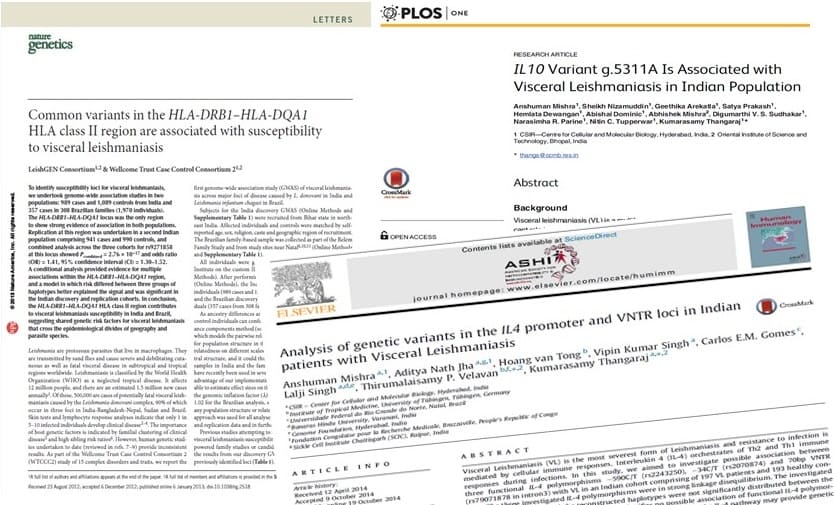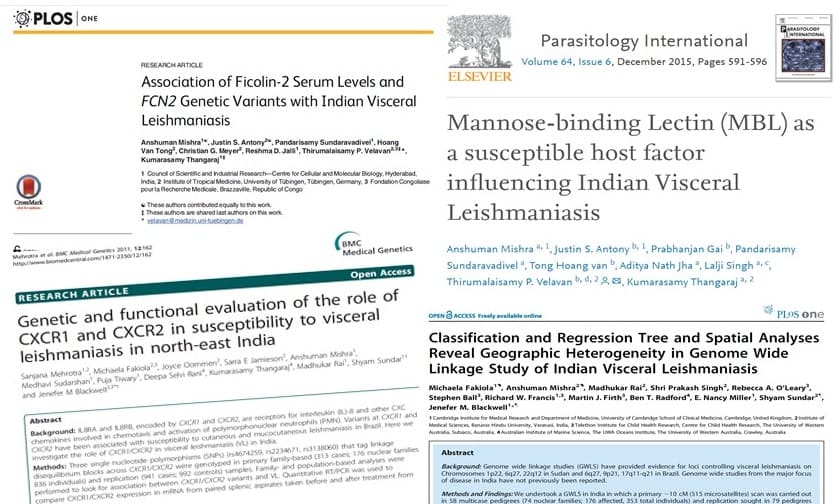

Dr. Anshuman Mishra is Prof. Herbert Gleiter Fellow and Group Leader at Translational Research & Sustainable Healthcare Management, Institute of Advanced Materials, IAAM. Dr. Mishra is engaged in several international consortiums and get financial support time to time from premier international organizations mainly with Wellcome Trust, UK; National Institutes of Health (NIH), USA; Bill Melinda Gates Foundation, USA; Department of Biotechnology, Department of Science and Technology, Indian Council of Medical Research, Immunology foundation, India etc. for his disease research activities.
Dr. Mishra has more than 15 years of research experience in the area of disease susceptibility, immunogenetic regulations, pathogen diversity, phenotype studies, pharmacogenomics, evolutionary research, sustainability and population healthcare management. He worked in the world premier institutions comprising Institute of Medical Sciences, Banaras Hindu University (BHU), India; Cambridge Institute of Medical Research (CIMR), University of Cambridge, UK; CSIR-Centre of Cellular and Molecular Biology, India; and Genetic Engineering Institute, Pusan National University, South Korea. His research was published in the world leading journals for example Nature Genetics, Journal of Investigative Dermatology, etc. and also majorly recognized by leading scientific societies across the world.

Dr. Mishra involvement with worldwide expert group of UK, USA, Germany, India, Brazil etc. and active participation of more than 10 years in endemic region reveals distinct immune related genes involvement due to unique population of India. Dr. Mishra found a novel variant (g.5311A-IL10) association with VL patients in India. His study accentuates the complex regulation of VL outcome & demonstrates how the environment, genes & evolution interact to shape the pattern of variation. Common variants in the HLA Class region are associated with visceral leishmaniasis susceptibility is well established facts comes out in studies led by Welcome Trust, United Kingdom supported projects for major foci of visceral leishmaniasis. Dr. Mishra work on genome wide linkage, association and phylogeography studies to reveals presence of heterogeneity regulation in endemic region of visceral leishmaniasis of India.

Dr. Mishra translational research is based on diversity and evolutionary information’s of pathogens and host. Understanding, pathogen and host diversity along with immunogenetic regulations is important to develop better healthcare model. Dr. Mishra using advanced genomics, pharmacogenomics, phylogeography and clinical research as tools to understand the infection progression and making strategies for diagnosis, therapeutics and control aspects.

Studies on phenotype and genotype research for health reveals several information's for human adaptation, migration and risk associated with clinical relevance. Dr. Mishra established co-relation of rs2470102 first time for skin pigmentation in Indian populations. His results show that dual SNPs model (rs1426654 and rs2470102 of SLC24A5) play an important role in the skin pigmentation diversity of South Asians. In particular, social category and associated SNPs explain about 32% and 6.4%, respectively, of the total phenotypic variance. Dr. Mishra work on human behaviour via genomics approaches reveal interesting genetic co-relation.

The global demand of a sustainable healthcare model for effective management is created by adapting the world class technology setting. Dr. Mishra, research is based on regional public health models and technology integration to develop the sustainable prognosis model. Sustainable healthcare management lie in technology selection (such as IoT, Genomics, sensor, Cloud and AI etc.) along with standard practices for defined public health road map. Dr. Mishra involvement in translational research and field trial of healthcare technology is based on sustainable management.

Infectious disease is complex, multigenic & regulated at different levels so it is essential to identify the risk via interdisciplinary approaches. Dr. Mishra established immunogenetic correlation in Visceral Leishmaniasis in endemic region of India. His research is based on multiple field visits, high throughput screening, immune characterization and genetic analysis in VL patient and control cohort, suggest association of non-synonymous SNPs in host susceptibility.
